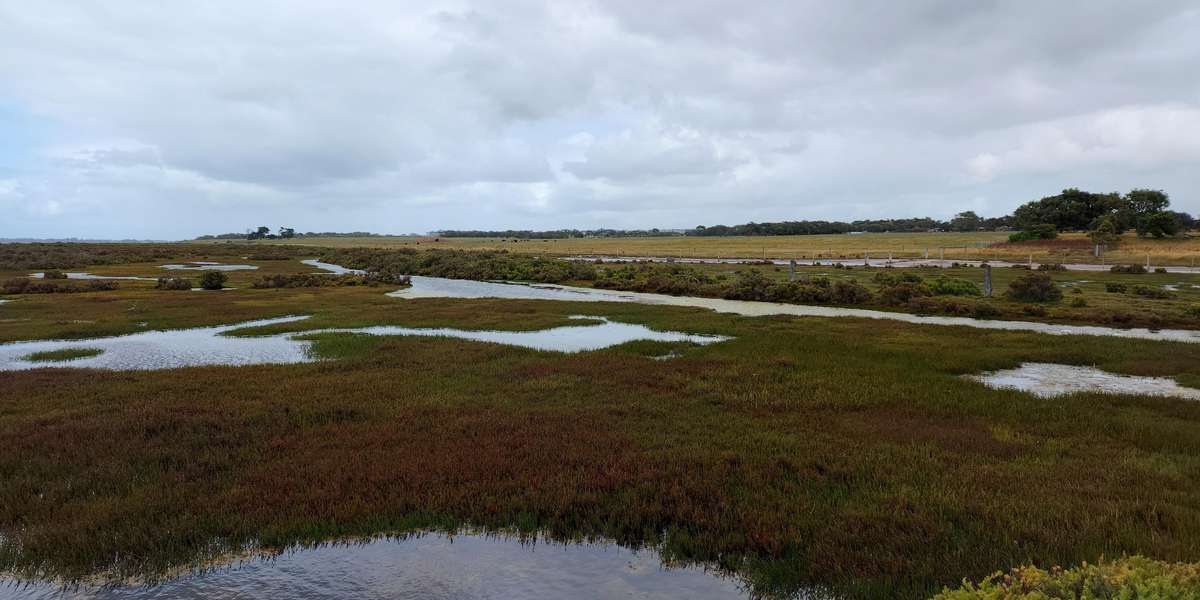2023
2024
2025
December 13, 2022

Swan Bay wetland restoration
Managed by Blue Carbon Lab - Deakin University
Since 2022
In Victoria, AU
DEA104
This chronolog combines 34 photos from 33 contributors. Learn more
About this site
Historically natural coastal wetlands were converted to pastureland to maximize available farming areas along Victoria’s coast. However, these coastal pastures limited the profitability of the land due to the difficult growing conditions, invasive weeds and waterlogged soils.
Our project intends to use low-cost fencing to restore marginal farmland back to coastal wetlands, where farmers end up with an environmental asset that benefits them and the wider community.

Restoring saltmarsh habitat not only helps increase the diversity of vegetation, but it also provides suitable habitat for many threatened and endangered fauna including the orange-bellied parrot, growling grass frog, resident and migratory shorebirds (listed as in fair condition with a declining trend in the 2016 State of the Bay report). A healthy functioning saltmarsh provides many other ecosystem services, including storing carbon from the atmosphere, reducing nitrogen loads into the bay, protecting our coastlines and enhancing recreational fisheries.
About Blue Carbon Lab - Deakin University
Deakin University’s Blue Carbon Lab offers innovative research solutions for helping to mitigate climate change and improve natural capital, while also contributing to jobs, economic growth, capacity building and community wellbeing.
The Blue Carbon Labs’ in-house expertise spans ecology, biogeochemistry, microbiology, environmental economics, modeling and mapping/remote sensing.
For nature-lovers
Explore chronologs
For organizations
Chronolog is a monitoring tool for parks, nature centers, wildlife organizations, schools, and museums worldwide. With over 100,000 contributors across 300 organizations, Chronolog is on a mission to engage communities with nature while recording important natural changes.
© Chronolog 2025 | Terms